Emergency Dentist Wethersfield
Fast & Effective Relief from Dental Emergencies

At Dolan Dental Group, we understand that emergency situations tend to strike when someone is least expecting it. Maybe your child fell on the playground and knocked out a tooth, or maybe what was once slight discomfort in the mouth has suddenly blossomed into severe, ongoing pain. Whatever your situation is, Dr. Brendan Dolan and Dr. Riley Gionfriddo have one important goal: to provide fast, effective relief! That’s why our team treats urgent cases as soon as we possibly can. Don’t hesitate to give our Wethersfield, CT office a call today to schedule an emergency dentistry appointment. We also welcome patients from Rocky Hill, CT, and other surrounding areas!
Why Choose Dolan Dental Group for Emergency Dentistry?
- Same-Day Emergency Appointments
- Compassionate Team of Dentists
- Dental Sedation Available
How We Treat Dental Emergencies
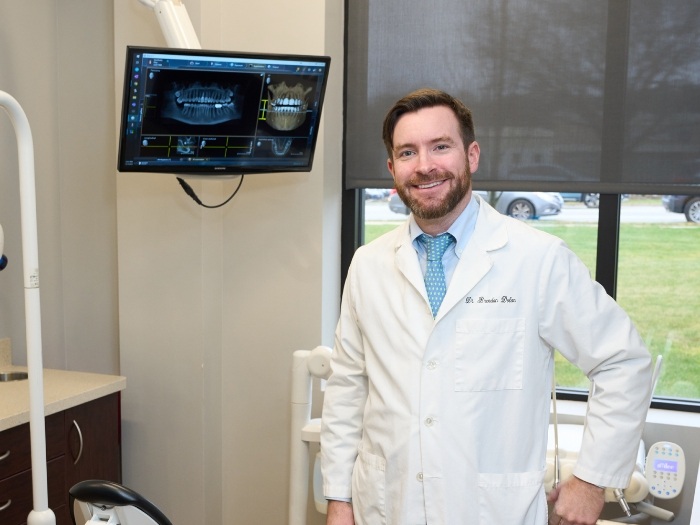
- Call Our Team: The first step you should always take during a dental emergency is to call our team so we can schedule your appointment as soon as possible. We try to see patients in pain the same day they call.
- First Aid Guidance: We’ll provide you with over-the-phone first aid guidance to minimize any additional damage to your smile.
- Emergency Examination & Pain Relief: As soon as you arrive, we’ll examine your teeth and gums and collect any necessary diagnostic imaging to diagnose the issue at hand. We’ll also provide you with sedation or medication to help ease your pain.
- Treatment Plan Review: Once we’ve diagnosed the problem, we’ll go over our treatment plan with you, along with a detailed cost estimate.
- Get Your Smile’s Health Back on Track: As soon as you agree to move forward with our proposed treatment plan, we’ll get to work restoring the health of your smile.
The Most Common Dental Emergencies
Dental emergencies can either occur in a flash, like in the case of falling and breaking a tooth, or they can gradually arise, such as an infection that results in a severe toothache. Whatever the case may be, your emergency dentist in Wethersfield is more than prepared to handle it. Below, we’ve listed some of the most common dental emergencies that we treat. However, even if you don’t see your exact situation listed, we recommend calling us if you’re experiencing out-of-the-ordinary symptoms or oral discomfort.
Understanding the Cost of Emergency Dentistry
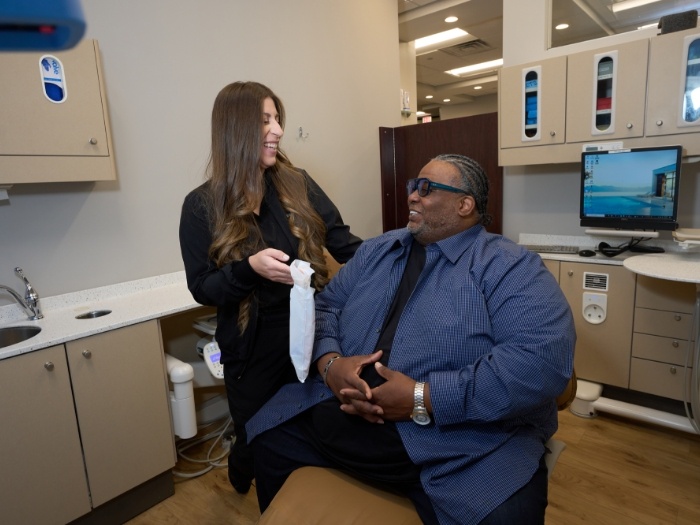
When you come to see us, our first priority will be getting you out of pain. From there, we can conduct a comprehensive oral exam, pinpoint the root of the problem, and formulate a treatment plan tailored to your unique smile needs. Rest assured that our friendly and helpful team will do our utmost to restore your oral health without breaking the bank!
Every Dental Emergency is Different – Here’s Why

Simply put, no two situations are exactly the same. That’s why we can’t provide you with an estimate of the cost until your appointment! The amount you’ll have to pay for your emergency treatment will depend on the type of dental injury, the extent of the damage, and the best way to restore your smile. For example, a minor treatment, like reattaching a crown, will cost significantly less than replacing a knocked-out tooth with a dental implant.
As we mentioned above, we will provide you with an estimate of the cost at your appointment so you aren’t left in the dark about something as important as the price of your care.
Does Dental Insurance Cover Dental Emergencies?
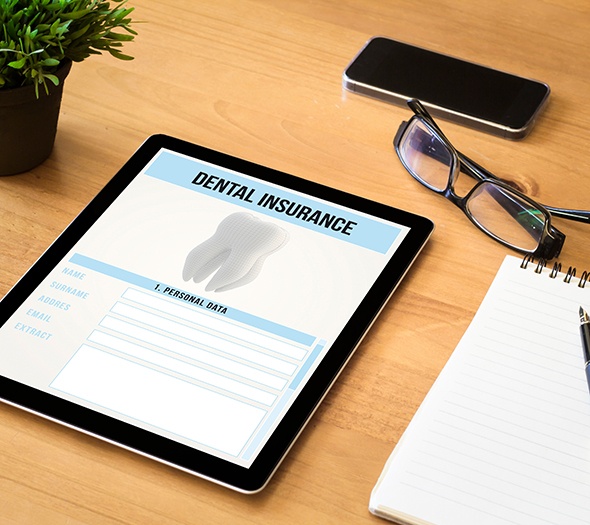
Sometimes, yes! Many dental plans have a 100-80-50 structure, which means 100% of the cost of preventive care is covered and between 50% and 80% of the cost of essential restorative treatments are covered. Of course, waiting periods, annual maximums, and other red tape need to be considered as well, so make sure to read through the fine print on your plan (if you haven’t already). If you need any help, you can always ask our Wethersfield dental team as well!
Other Options for Making Dental Emergencies Affordable
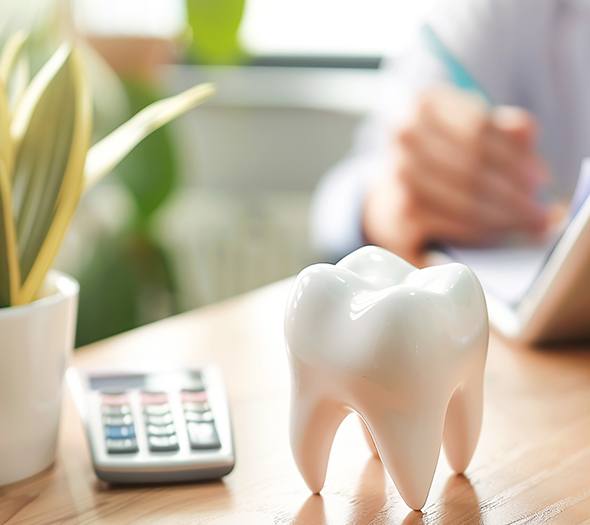
If you don’t have dental insurance at the moment, that’s okay – there are other ways to make the cost of emergency dentistry more affordable. At our office, we offer complimentary financial consultations, split-payment options, and third-party financing. If you would like more details, don’t hesitate to give us a call! We can provide you with further details, answer any questions you have, and help you determine which option is best for you and your budget.
How Taking Care Of Your Smile Can Save You Money

Remember, good oral hygiene habits, like brushing for two minutes each morning and flossing each night before you go to bed, dramatically reduce your chances of experiencing common oral health problems, like cavities. So, if you haven’t already, incorporating best practices like these into your daily routine is a must. Outside of that, make sure that you’re coming to our office every six months for a dental checkup and cleaning. That way, we can catch (and treat) issues as early as possible.
Important note: If you are experiencing abnormal dental symptoms, like pain when biting down, don’t wait – schedule an appointment with us right away. That way, we can conduct an oral exam. If we find anything, like a small cavity or damaged restoration, we can intervene with the necessary care before it gets worse.
Keys to Preventing Dental Emergencies

While there isn’t a way to prevent dental injuries 100% of the time, there are a few precautions you can take to lessen your likelihood of experiencing one. With this in mind, keep reading to learn a few steps our emergency dentist in Wethersfield recommends taking to protect your smile, starting with scheduling a checkup and cleaning every six months.
Visit Us Twice a Year for a Checkup and Cleaning
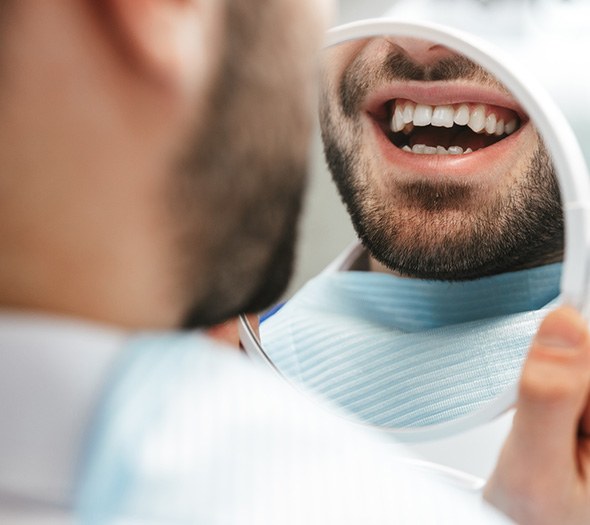
There are several reasons we recommend scheduling an appointment every six months with our dental team in Wethersfield, including that your toothbrush and floss can’t remove built-up plaque and tartar. Regular exams also ensure we can locate and treat little problems before they spiral into big ones. So, if you want to protect your smile from a painful dental injury, it’s crucial that you prioritize your biannual checkups and cleanings!
Maintain Good Oral Hygiene At Home

Of course, you also need to take good care of your smile on a daily basis. We recommend starting with the basics, like brushing twice a day and flossing every morning or evening. Then, focus on improving your regimen by rinsing with mouthwash regularly and replacing your toothbrush every six months. If you ever have any questions for us, whether it’s about proper technique or which product is best, don’t hesitate to call!
Avoid Extremely Crunchy Foods

In an effort to prevent chips, cracks, and fractures, we encourage our patients to avoid foods that are overly tough to chew. It’s also a good idea to limit your intake of snacks that are packed with added sugar since they can quickly eat away at your enamel. To put it simply, eating mostly well-balanced, nutrient-dense meals benefits both your oral and overall health.
Wear a Mouthguard During Sports

Do you participate in sports where physical contact can happen? Do you suffer from bruxism (teeth grinding)? In both cases, there’s a significant risk of dental damage. That’s why we recommend scheduling a consultation with us! That way, we can have a custom mouthguard made, reducing your risk of broken, worn-down, and knocked-out teeth in the process.
Don’t Use Your Teeth as Tools

Be honest… Do you sometimes use your teeth to remove plastic wrapping or a bottle cap? Do you sometimes bite your nails? Even seemingly harmless habits like these can lead to a serious dental injury, which is why it’s always best to use the proper tools, like scissors or a nail clipper. It may seem inconvenient at the time to track them down, but there’s a good chance it could prevent you from needing same-day care.
Emergency Dentistry FAQs
Will my toothache go away on its own?
Toothaches don’t generally go away on their own. Because of this, it’s best to schedule a checkup with your dentist to ensure that nothing is wrong. There are many potential causes for a toothache, and you’ll want to rule them out with a professional as soon as possible. Doing this can help you to catch underlying issues before they become more serious.
Should I visit the emergency room first for dental emergencies?
Unfortunately, most emergency rooms aren’t able to address dental emergencies effectively. However, there are a few main exceptions where the ER is a better option. You should head to the ER if you have experienced a jaw fracture or dislocation, a serious cut or laceration to the face or mouth, or an abscess or infection that’s swollen to the point of affecting breathing or swallowing. In pretty much all other circumstances, you should visit a dentist first.
Do I need to visit for minorly chipped teeth?
Teeth are unable to heal on their own when they are chipped, fractured, or otherwise broken. This means the tooth will only become damaged further if you don’t seek treatment. Depending on how severe the break is, there are several different possible solutions. It is especially important to head to the dental office if the chipped tooth is sharp or jagged, as it could cut your gums or oral tissue.
Are toothpicks safe to use?
Toothpicks, particularly wooden ones, are not the safest option out there. When you use them, it is easy to damage your enamel and gum tissue. Also, wooden toothpicks can splinter in the mouth. It is even possible to push food debris further between the tooth or under the gum line, therefore causing issues. Toothpicks should thus only be used as a last resort.
How should I sleep with tooth pain?
Our team in Wethersfield offers same-day emergency visits and options for dental sedation so that you don’t have to wait long for relief. However, some patients develop a severe or persistent toothache outside of our normal business hours and must wait a night or two before they can contact us.
If your discomfort is preventing you from falling asleep at night, there are a few things you can try that might help. For instance, you can place an ice pack to the sore side of your face for 15 minutes to induce a temporary numbing sensation. You might also take the recommended dose of an over-the-counter medication, such as ibuprofen or acetaminophen. Finally, you can try to doze off in your favorite recliner or with your head propped on several pillows at an angle to keep blood from pooling painfully behind your tender tooth.
Should knocked-out teeth be placed in water?
Dislodged adult teeth always necessitate an emergency dental visit because they only remain viable outside of your mouth for a short period of time. If the tooth is in good condition and isn’t broken or decayed, there’s a chance our team can place it back in its socket with some added support to eventually reintegrate with your jawbone.
You might think it’s a good idea to store it in a container of water while you wait, but doing so might damage the living cells on the roots. It’s better to include a small amount of milk or some of your saliva to preserve it until you arrive at our office.
Can I superglue my broken dentures?
You might not consider damaged dentures to be urgent, but you shouldn’t wear them if they’re cracked or broken because you might lacerate the tissues inside your mouth, develop sores that can become infected, or throw off your bite alignment.
However, please contact our office to have them professionally repaired rather than trying to fix them yourself at home with superglue or other household products. They aren’t usually intended for oral use and might be toxic if ingested. Furthermore, you might accidentally glue your dentures incorrectly or get glue stuck to your teeth, gums, or throat. Meanwhile, our team has the experience, technology, and materials to repair the damage safely while protecting your dental health.
What should I keep in my emergency dental kit?
Putting together a kit at home, for your vehicle, or to have at work ensures you’ll have all the supplies you need to handle any dental emergency that arises. Some helpful items to include are:
- Travel-sized toothbrush and toothpaste.
- Floss or flossers.
- Sterile gloves.
- Gauze or cotton pads.
- Dental cement.
- Dental wax for orthodontics.
- Denture adhesive if you use it.
- Ice pack
- Water bottle.
- Numbing oral gel.
- Over-the-counter medications.
- Contact information for our office in Wethersfield.
